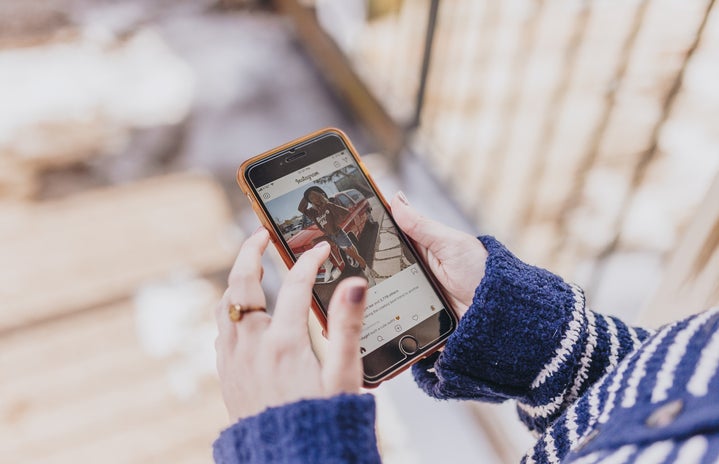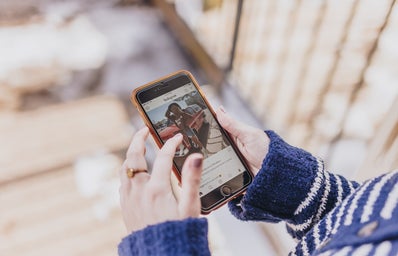The first lockdown especially was a time of decluttering and re-organising for a lot of people. While I’m all about making more space in my wardrobe, one of the best things I did during that time was unfollow almost everyone on Instagram – a social media declutter, if you will. This was long overdue and damn do I feel better for doing it.
Like most people, I’m guilty of spending more time on social media since the pandemic hit than I usually would and I’d always end up in a bit of a slump afterwards. Not just because I was yearning to be more productive and mourning my 2020 plans, but I soon realised that my feed just wasn’t tailored to me and who I was anymore. I’ve had Instagram since I was probably too young to understand the impact it can have. And yet, I don’t think I’d ever spent time going through who I was actually letting onto my feed every single day. I should mention that I was a huge people-pleaser so I initially found it hard to turn that grey button into blue. I had to remind myself that in order to enjoy using these platforms that let me feel connected to other people, as well as being a huge creative outlet in a time of stunted personal growth, that I was in fact in complete control of what I let myself be exposed to on a daily basis. Well, to an extent anyway.
The key is to be absolutely ruthless. It’s as though you’re sitting on your bedroom floor clinging onto an item of clothing that you’re convincing yourself you’ll wear eventually, even though it’s been sitting there unworn for years. It’s the same for your social media declutter, kind of. Whether you’ve known them personally since your childhood years or they’re a new celebrity idol, if they don’t offer you something that genuinely and consistently uplifts your mood, then why are you following them? I made endless excuses as to why I was still following accounts that would often trigger bad mental health habits. I’d scroll and scroll and before I knew it I was comparing every inch of my body to theirs, or I’d question why I wasn’t as personally or academically successful as the people on my screen. And most of them were complete strangers who I actually knew very little about. It became an endless cycle of convincing myself that my life was incomparable to a stranger’s who was on a completely different path, with different goals, and different struggles as well as triumphs, but still feeling defeated and unaccomplished.
But the year of 2020 meant that social media was undeniably a little different to normal. There were fewer posts involving travelling and socialising, and I think it encouraged more people to share the more mundane and realistic parts of their day. It served as a reminder that people only ever show their highlights online. I mean, why would you update your story if you just got another job rejection or couldn’t get out of bed before noon, right? Of course, it was a time of frustration, loss, and hardships for most people, but I found myself connecting to people in a way I’d never done before because of that. Tailoring my feed and gaining control over who I was being exposed to and who I was sharing my life with changed the game. I’m now engaging more with people who inspire, motivate, and encourage me on my journey of growth, self-love, and self-acceptance.
‘You become like the company you keep’ doesn’t necessarily apply to the connections we make in person, especially in a media-dominated society – an important thing to remember in a place that is as toxic as it is liberating.


